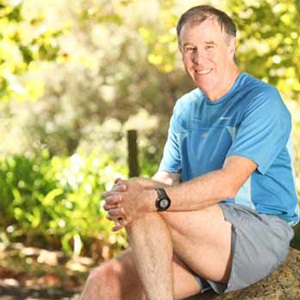
South Africa’s battle with the bulge is fast becoming a health epidemic. A survey by global healthcare company GlaxoSmithKline earlier this year confirmed that at least 60% or nearly two out of every three South Africans are overweight, obese or morbidly obese.
According to The Harmony Group, carbohydrate and sugar addiction is one of the biggest contributors to these alarming statistics.
It was also its motivation for pioneering the Harmony Eating and Lifestyle Program or HELP, a revolutionary approach to combatting obesity that recognises the genetic, psychological and behavioural aspects of carbohydrate and sugar addiction.
Brainchild of Karen Thomson from the Harmony Group, the country’s first 28-day in patient carbohydrate and sugar addiction programme was developed in association with Professor Tim Noakes, the professor of exercise and sports science at the University of Cape Town and celebrated dietician, Rael Koping. Its launch fittingly coincides with National Obesity Week which runs from 15 to 19 October 2012.
Similar reaction in brain as heroin
Like the better known alcohol, drug, gambling and sex addictions, carbohydrate and sugar addiction can impact on the physical and mental health of sufferers, as well as on those closest to them.
The Society for Neuroscience suggested that sweets may activate a similar biochemical system of incentives and rewards that leads to addiction of substances like heroin and other opiates in the brain.
Speaking at the launch at the Harmony Clinic in Hout Bay, Cape Town, Professor Tim Noakes added that carbohydrate and sugar addiction is caused by an imbalance in the hormone, insulin. “Insulin performs numerous functions in the body.
It signals the body to store energy in the form of fat. The body may over-release insulin when carbohydrate-rich foods are eaten. Carbohydrate addiction leads to a strong impulse to eat, too often, and a body that too readily stores food in the form of fat. It becomes a vicious cycle,” he said.
Rael Kopping added, “Research into substance addiction has shown that individuals react differently to drugs and alcohol. Some people have a genetic predisposition to addiction. fPET scans of the brain have shown which areas of brain tissue are activated when stimulated by drugs.
Recent research has shown that some people’s brains respond similarly to carbohydrate meals, to the way that addicts’ brains respond to drugs. This indicates that for some people, carbohydrate foods have psychotropic properties.
HELP treats carbohydrate addiction as a substance addiction, as opposed to an eating disorder. By maintaining a low carbohydrate diet, patients find it easier to stay in remission and restore their health.”
Skilling patients for long-term results
The Harmony Group of clinics have well-established 12-step addictions programmes which have been successfully applied to substance, process, sex and now food addiction.
Although everything is medically supervised, it remains a holistic programme featuring individual and group counselling, facilitated inner work, trauma counselling and techniques in relapse avoidance. This deep process work addresses the personal and psychological component of addiction, and is at the core of the HELP programme.
HELP is not a weight loss “boot camp”, and is more focused on skilling patients for long term results. That said, it is our experience that participants may lose between four and nine kilograms during the program, depending on their physiological profile.
People who may benefit from HELP include:
- People who feel that carbohydrates, including starches and sweet fatty foods, are very difficult to manage in moderation, often leading to binge eating.
- People who turn to carbohydrate foods to treat their own dysphoria (feeling down), feel better after eating such foods, or feel withdrawal when trying to cut these out of their diets.
- People who feel that their metabolism is unresponsive, and do not get results despite applying good effort.
- People who have any of the symptoms of Metabolic Syndrome, but find it difficult to adhere to high carbohydrate guidelines in managing their health.
Further information on HELP is available by visiting www.helpdiet.co.za or by calling 082 736 6702.
(Photo credit: Carol Coetzee of Huisgenoo
Read more:
Tim Noakes on carbohydrates
Lick your sugar habit
5 sugar myths
Binge eating may lead to addiction-like behaviours
Join the Tim Noakes debate




 Publications
Publications
 Partners
Partners













